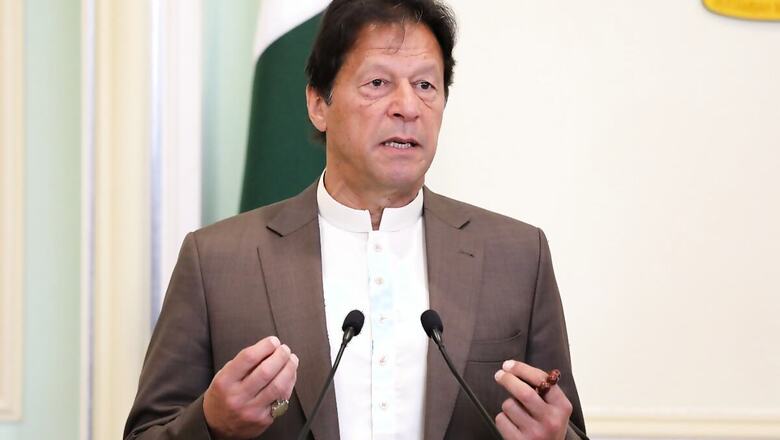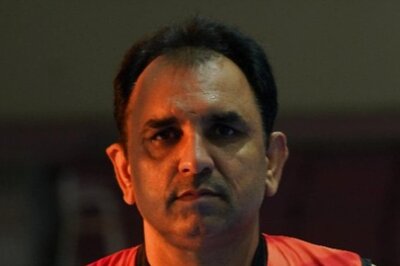
views
In what is being seen as a major setback to Pakistan, Financial Action Task Force (FATF) in its plenary held in Paris, which concluded on February 25, has decided to keep Pakistan in the grey List of the top anti-money laundering and terror financing global watchdog.
Dr Marcus Pleyer, President of the FATF, while interacting with the media-persons, said, “Pakistan remains under increased monitoring. The FATF recognises that Pakistan has made significant progress in its efforts to improve its anti money-laundering and counter-terrorism financing framework.”
“However, some serious deficiencies remain. All of these deficiencies are in areas that relate to terrorist financing. Out of 27 items on its action plan, three still need to be fully addressed. I strongly urge Pakistan for the completion of the action plan,” Pleyer announced.
The FATF plenary will meet again in April to discuss emergency procedures amidst the global pandemic, yet Pakistan will now only figure in the discussions held in the June plenary of the top body.
FATF has asked Pakistan must demonstrate effective action in the implementation of targeted financial sanctions, that funds are not made available to UN designated terrorists and their associates. FATF has also asked Pakistan to improve their investigations, the prosecution of all groups and entities that are helping finance those UN designated terrorists. Pakistan must also show that the penalties by courts are effective, dissuasive and proportionate.
“As soon as Pakistan has fully completed this action plan with these three remaining outstanding items, then the FATF will verify the implementation and improvements and test the sustainability of these reforms and only then the members of the FATF will decide on the next steps,” Pleyer said during the briefing.
Sources who were part of the FATF plenary in Paris indicate that ‘Many countries which objectively evaluate Pakistan’s performance, still believe that enough has not been done, especially when it comes to stopping the fund collection activities of proscribed groups and prosecution of terrorists for actual acts of terrorism.
Pakistan has been skirting the issue of prosecution by repeatedly convicting a small set of individuals on terrorism financing charges, giving them concurrent sentences instead of cumulative, and totally ignoring their involvement in major terrorist cases. As a result, despite having friendly countries in the Asia Pacific-Joint Group of the FATF, Islamabad has failed to make the cut. In June too, its prospects of exiting the Grey List are dim given the unfettered fund raising activities of proscribed terrorist groups like the Lashkar-e-Taiba (LeT)/ Jamaat-ud-Dawah (JuD), Jaish-e-Mohammed (JeM) and their affiliates.’
Pakistan’s main argument has been that the FATF process, which is supposed to be technical, is being politicised by a few countries to demand more than what is required. It still does not see that the technical requirements are not check boxes that need to be ticked off, but are there for an obvious reason – to put an end to the scourge of terrorism. Its reluctance to put an end to the rather blatant fund raising activities of the LeT/JuD and JeM and complete impunity in ignoring their role in some of the most heinous acts of terrorism have convinced the international community of the lack of intent on Pakistan’s part to genuinely address the problem of terrorism.
In spite of being proscribed, recent print and social media posts of the LeT/JuD and the JeM reveal an alarming trend of over-ground activities including fund raising, promotion of Jihad and training. Even names of prominent leaders and contact details are blatantly displayed without any fear.
Last week, exiled dissidents of Baloch, Pashtun, Uyghur, Tibet and Hong Kong origin had organised a protest outside the FATF headquarters, urging the international monitoring body to blacklist Pakistan and deliver on its mandate of stopping terror financing and sponsoring from Pakistan.
The author is Contributing Editor, News18 group with more than a decade long experience in covering Conflict, Foreign Policy and Internal Security.
Read all the Latest News, Breaking News and Coronavirus News here




















Comments
0 comment